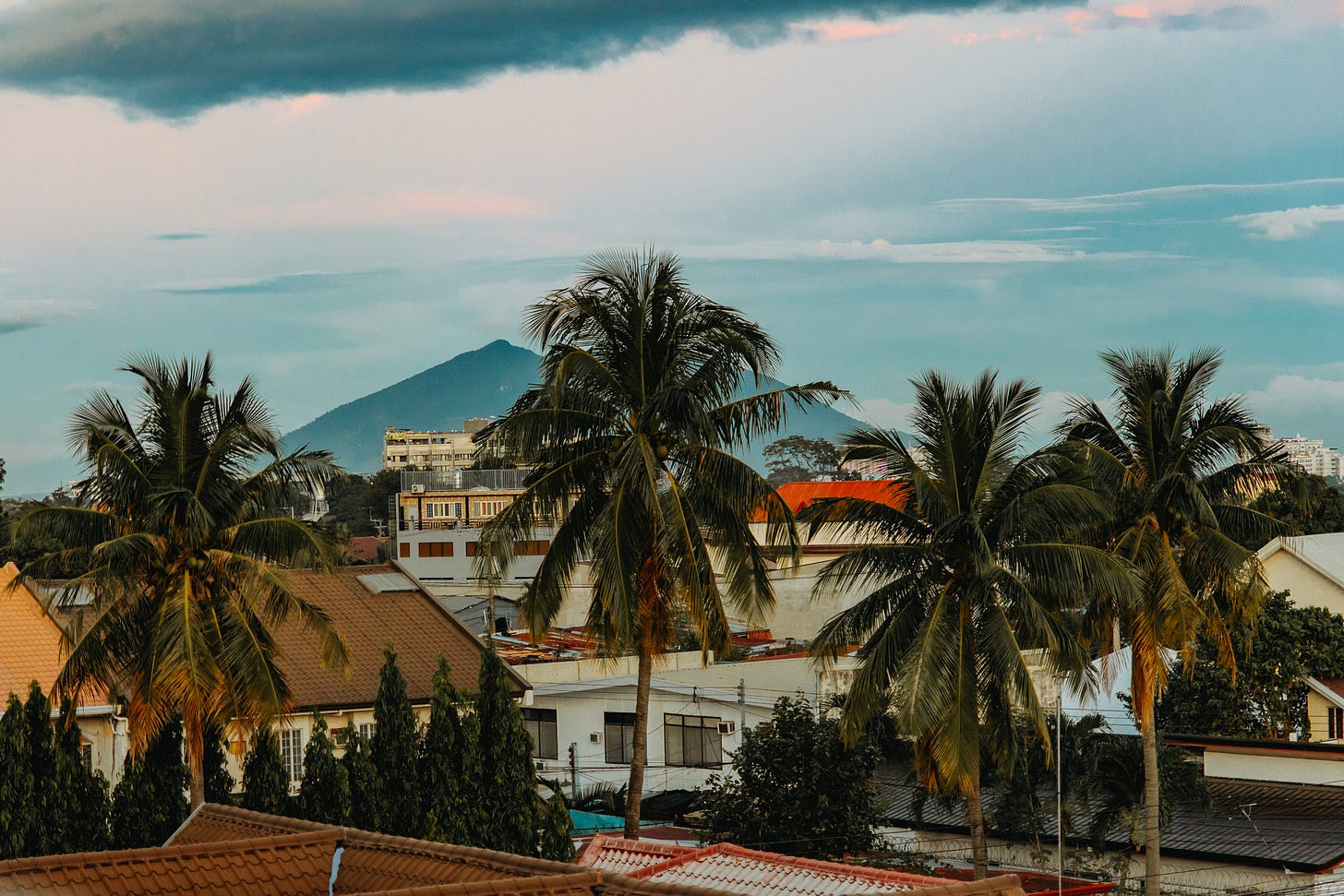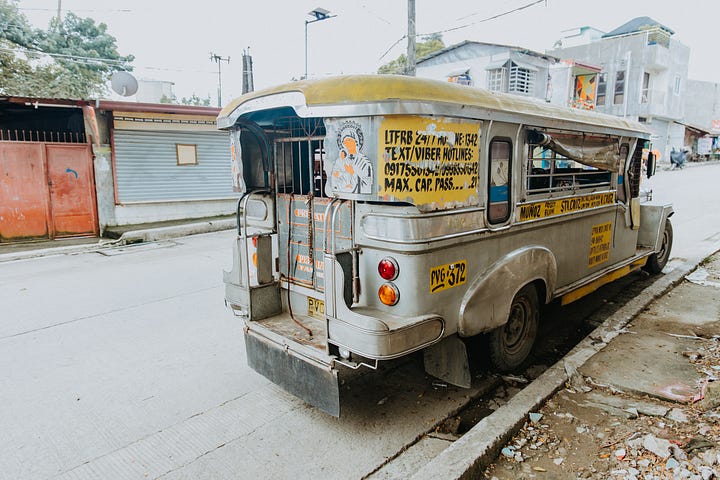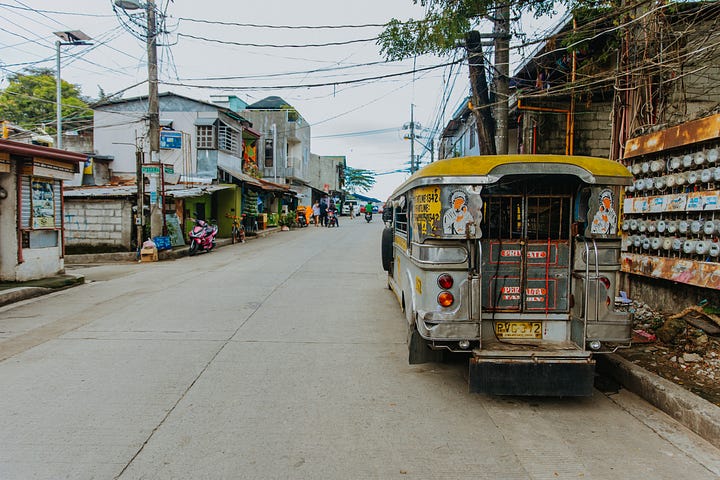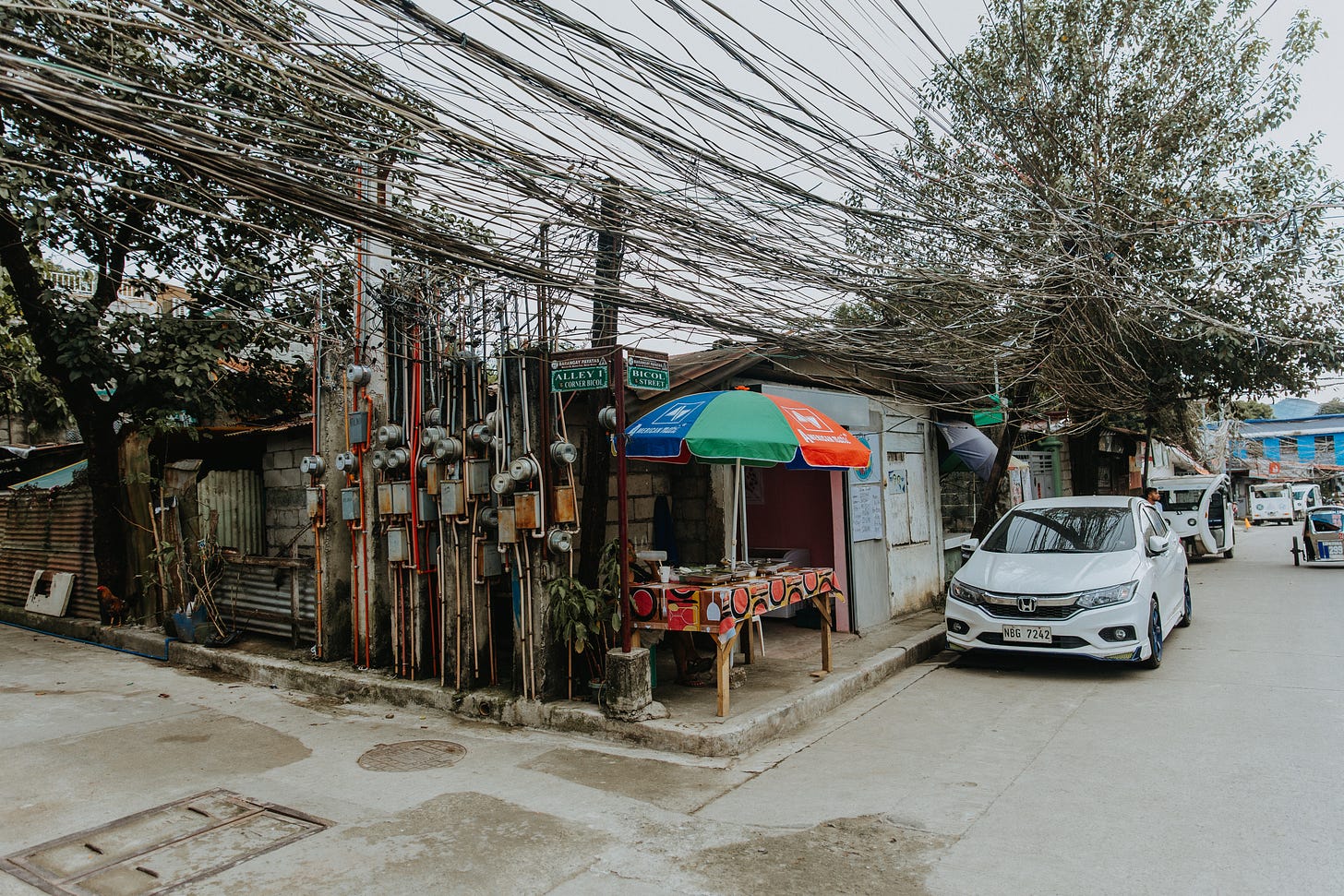I sat in the back row of a 12-passenger van, perched between coworkers. We shared a sheen of sweat, the humid air in the Philippines pushing 90 degrees even in November. The van’s air conditioning had broken, so the windows were rolled partway down. That meant the 14-year-old girl sitting in the passenger seat could hang her head out the window — which she did, with bright abandon. I watched her lean into the wind, her fine, bobbed black hair whipping back over her ears. Her shoulders hunched forward into the momentum of the vehicle, as if the motion could sweep her away to somewhere new — somewhere she’d never been.

I’d met this teenager an hour or two earlier. I want to honor her, so I can’t share her real name — I’ll just call her Gemma.
Gemma is one of seven kids, just like I am. I met her younger siblings outside of a cinder block shack constructed from cast-offs and found treasures. “Before You Go” by Lewis Capaldi was booming from someone’s speaker in a distant part of the slum while the kids tumbled around my coworkers and me, a chattering riot of conversation.
But Gemma was quiet, standing alongside her 17-year-old sister, sharp eyes watching their younger siblings. I could just barely see their mom, sitting primly in a cast-off armchair in the shadows of the shed where they lived. I had the sense of her will containing the collection of kids with all the complexity of motherhood burdened by poverty.
Gemma pointed to the rose tattoo on the outside of my right wrist, the bleeding blooms copied from an album cover. “Pretty,” she said simply, one of the few words in English she knew.
I thanked her, asked if I could see her tattoos too — sketches I’d seen tucked into the folds of her fingers and wrists.
She held out her hands, showed me the stick-and-poke words and smilie faces. “Ugly,” she said simply, wistfully.
The word wrung my heart, two syllables proclaiming the power of stories she’d been told about herself.


I had an unfair advantage: I knew more of Gemma’s story than she knew of mine. I work for an anti-trafficking nonprofit called The Exodus Road, and our team had known Gemma for some time. Because of this, I knew that she and her older sister had already been trafficked for sex not once, but twice. My coworkers had partnered with law enforcement to intervene and remove them. Her mother, the desperate ruler of a desolate kingdom, kept asking the girls to make money to support their younger siblings. When older men offered the girls a job, it must have seemed like the answer to the constant pressure to provide.
But of course, it wasn’t an answer, not really. It was abuse.
“Not ugly,” I told Gemma simply. “What tattoos do you want?”
Using our sparse shared vocabulary, she told me that one day she wanted to get the tattoos she already had covered up. She wanted to get real tattoos, ones she chose.
We spent the rest of that warm, syrup-sticky day with Gemma and her older sister. They rarely had a chance to leave their neighborhood, to be with people who didn’t want anything from them. I sat with them through their wariness when accepting simple cookies and fruit juice as a snack. I could see the taut transactional math traced in the tension of their shoulders, the sense that they were looking for the strings attached.
The day ended in a McDonald’s, where we filled a table with boisterous conversation and cheap french fries. Gemma suddenly looked at me and declared something in her own language. I looked to my coworker as Gemma ducked her gaze away from me, suddenly shy.
“She says you’re so pretty,” my coworker translated. “She says you look like a flight attendant.”
I laughed with sheer delight — I had never received that complimentary comparison before. “Thank you,” I told Gemma, seeking out eye contact again. “I wouldn’t mind being a flight attendant. I love to travel.”
“Me too,” she shyly admitted.
I wrote about Gemma soon after meeting her, recognizing the significance of my privilege in representing a different kind of womanhood for her. As someone who has battled with self-worth and self-image my whole life, in that moment I had a sense of my fight’s stakes. Through valuing myself, I can live in gritty, glorious defiance of a world that so often grinds girls up in the cruel gears of violence.
I have thought about Gemma often in the time since we met. I have had a few updates from colleagues about the resources we’ve provided to support Gemma’s progress in building a life for herself, but the reality is I’ll never really know where her life takes her — the outcome for the brave heart I saw leaning into the wind, looking to take flight.
I hope she gets some new tattoos, new stories on her skin. I hope she sees as much of this beautiful, broken world as I have. I hope she has the freedom to leave when she wants to leave. I hope she says no when she wants to say no. I hope she finds people who soothe her wariness into wonder.

Ascertaining those things for her is far beyond my control. At the end of our day together, we still had to drop Gemma back on the streetside of a slum demarcated by a gutter filled with garbage sludge. There are no guarantees in human rights work except for one: the heartbreak.
The work before me is not to guarantee the end of exploitation, of abuse. It’s to make other options possible. It’s to contribute to building a world where it’s no longer a foregone conclusion that Gemma will be used for the sexual gratification of much older Western men. To have choices: this is a privilege I have. To open choices to others: this is the gift I can spend my life giving.
This World Day Against Trafficking in Persons, I’m thinking about Gemma. I’m thinking about over 1,200 survivors of trafficking whose freedom my coworkers have participated in since I started working for this org three years ago. I’m thinking about the stories I’ve stewarded, the work that remains undone.
I hope you’ll spend a moment today thinking about them too. And if you want to get involved, learn more about The Exodus Road.




